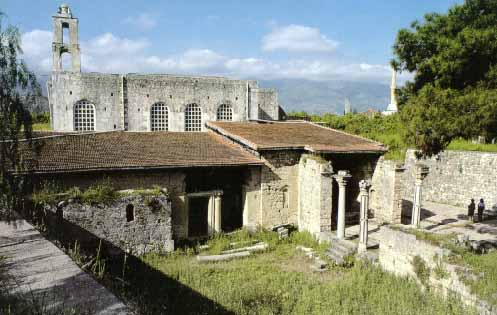| Today Turkey is a civil state with a Muslim
population of 98% but this has not always been the case as a quick glance at
the countries chronological table will show.
In 392 AD. Theodosius the Great made Christianity the state religion and
it remained so until the last Byzantium emperor, Constantine XI, died in
battle in 1453.

Long before the birth of Christianity one learns from the Bible that much
of the Old Testament drama happened on soil which is today defined as
Turkey. The Garden of Eden, for example is placed in the fertile plain
embraced between the Tigrus and Euphrates Rivers which have their sources in
Turkey and the final resting place of Noahs Ark is thought to be at Mt.
Ararat, north of Lake Van.
Close by here in the province of Antalya, which in the days of the
Classical Greeks and Romans, was known as Lycia. There is much evidence to
be found supporting the very early Christian Church and the ruins of those
young Byzantine Churches are to be seen at Xanthos, Letoon, Patara and other
sites. Patara, especially, figured in quite a major way and is mentioned in
the New Testament (Acts. 21:1-2) where the third missionary journey of St.
Paul and St. Luke is written about.
"And it came to pass, that after we were gotten form them and had
launched, we came with a strait course unto Coos, and the day following unto
Rhodes, and from thence unto Patara. Second, and finding a ship sailing over
unto Phenicia, we went abroad and set forth."
In all probability, the Chritian Church was established in Patara in
Apostolic times.
St. Nicholas of Myra (St. Claus) was born at Patara (BC.300) and spent
his youth there and in AD. 325, bishop Eudemus of Patara attended the
Council of Nicea.
|